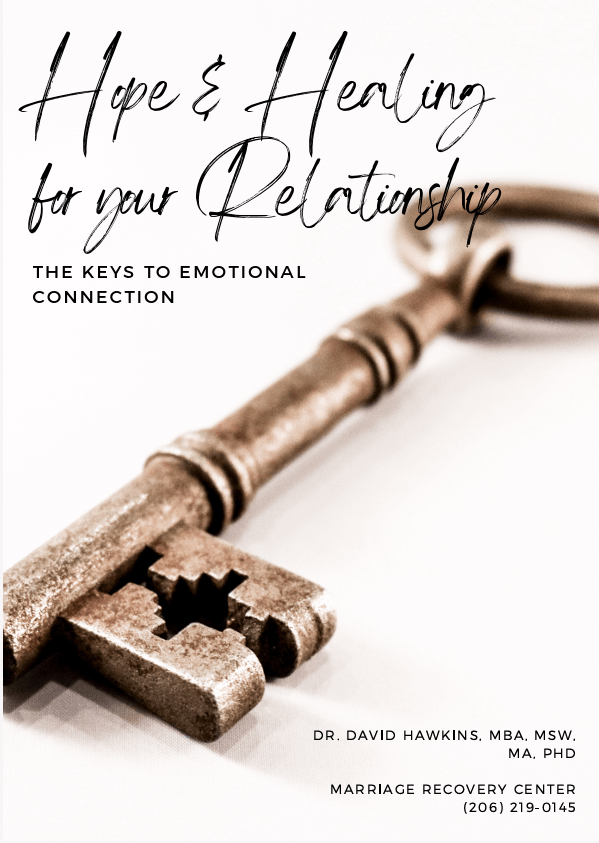The health of your relationship is not defined by the absence of conflict, but rather how you allow the conflict to define your relationship or marriage. Lee and Lenne reveal the secret on how to navigate conflict in a relationship.
How to Navigate Conflict in a Relationship
Conflict is an inevitable part of any relationship. Whether it’s a romantic partnership, a friendship, or a family bond, differences of opinion and emotional clashes are bound to happen. In this article, we will explore the intricacies of managing conflict in a relationship, drawing inspiration from a poignant story about an elderly couple and their umbrella, shared by Lynnae Hunt and Lee Kaufman from the Marriage Recovery Center. Conflict in a relationship often involves intense emotions, and understanding how to harness these emotions and channel them towards productive outcomes is key to maintaining healthy connections.
The Story of the Elderly Couple
To illustrate the dynamics of conflicted couples, Lynnae Hunt shares a touching story about an elderly couple from a painting she cherishes. The painting depicts an elderly couple, their faces etched with wrinkles that speak of a lifetime together. On this particular day, they appear grumpy, as if they’d rather not be in each other’s company. They sit on opposite ends of a park bench, their backs turned to each other, and it’s raining.
However, what stands out in this painting is the husband’s gesture. He’s brought an umbrella and, despite their evident discord, he opens the umbrella and stretches his arm as far as it will go to shield his grumpy wife from the rain. This simple act of kindness and love in the midst of conflict beautifully illustrates the idea that emotions in conflict must be harnessed by something meaningful, in this case, love.
Understanding the Emotions in Conflict
As Lynnae and Lee point out, conflicts in relationships are seldom purely cognitive; they are deeply intertwined with emotions. These emotions can range from anger and frustration to sadness and hurt. The key is to recognize that these emotions are not inherently negative; they are signals that something in the relationship needs attention.
Setting Clear Goals
The couple in the painting demonstrates that emotions in conflict must be harnessed by something meaningful, in their case, love. Similarly, in any conflicted conversation, having a clear goal is essential. Lynnae emphasizes the importance of understanding your intention for the conversation. What do you hope to achieve through this conflict? Is it about resolution, reestablishing connection, expressing your feelings, or understanding your partner’s perspective?
It’s worth noting that in a conflict, both individuals may have different goals, but each person should be aware of their own intentions and motivations. This self-awareness is crucial in ensuring that emotions are channeled constructively.
Regulation and Self-Awareness
Lee Kaufman brings valuable insights from her experience in teaching yoga and meditation, emphasizing the importance of regulation and self-awareness in conflict management. She outlines three key factors:
- Regulation: Before engaging in a conflict, it’s essential to assess your own emotional state. Are you regulated, or are you overwhelmed by anger or frustration? Being regulated means having a calm and composed mindset, which allows for productive dialogue.
- Intention: Consider your intention for the conversation. Is it meaningful and purposeful, or are you seeking to hurt your partner? A healthy conversation should be guided by positive intentions, such as understanding, resolution, or connection.
- Empathy: Be aware of your partner’s emotional state as well. Are they in a place where they can engage in a healthy dialogue, or are they too emotional to do so? Empathy towards your partner’s emotions is essential for effective communication.
Seeking Help and Resources
Managing conflict in a relationship can be challenging, especially when emotions run high. Sometimes, couples may find themselves at a stalemate, much like the elderly couple on the park bench. In such situations, seeking external help can be immensely beneficial. Marriage Recovery Center, for instance, offers resources and guidance to couples struggling with conflicts.
Their team of experienced professionals can mediate and provide tools for managing conflicts effectively. Additionally, they emphasize the importance of self-regulation techniques to prepare individuals for productive conversations.
Conclusion
Conflict in a relationship is not a sign of failure; rather, it is a natural part of any connection between two individuals. Emotions play a significant role in conflicts, and learning to harness these emotions for constructive purposes is crucial. Setting clear goals, regulating your emotions, having positive intentions, and practicing empathy are essential steps in navigating conflict in a relationship.
Remember that seeking help and utilizing available resources can be instrumental in resolving conflicts and strengthening the bond between you and your partner. Like the elderly couple in the painting, even in moments of discord, love can be the guiding force that helps weather the storm and emerge with a stronger, more resilient relationship.
To learn how we can help, reach out to us at (206) 219-0145 or info@marriagerecoverycenter.com to speak with a Client Care Specialist
Also read: How Intervention and Boundaries can Change a Relationship
About Dr. Hawkins:
The internet is inundated with hyperbole and misinformation about narcissism, leaving many people confused and hopeless. Get the facts on narcissism and emotional abuse from someone who has been researching, writing about and treating narcissism and emotional abuse for over a decade.
Dr. Hawkins is a best-selling author and clinical psychologist with over three decades of experience helping people break unhealthy patterns and build healthier relationships.
He is the founder and director of the Marriage Recovery Center and the Emotional Abuse Institute which offers education, training and counseling for people who want to break free of, and heal from, emotional abuse. Whether the perpetrator of the abuse is your spouse, partner, parent, boss, friend or family member, we offer practical advice for anyone trapped in a toxic, destructive relationship.
In addition to narcissism & emotional abuse, you’ll learn about the lesser known forms of abuse, including covert abuse, reactive abuse, spiritual abuse, secondary abuse, relationship trauma and much more








